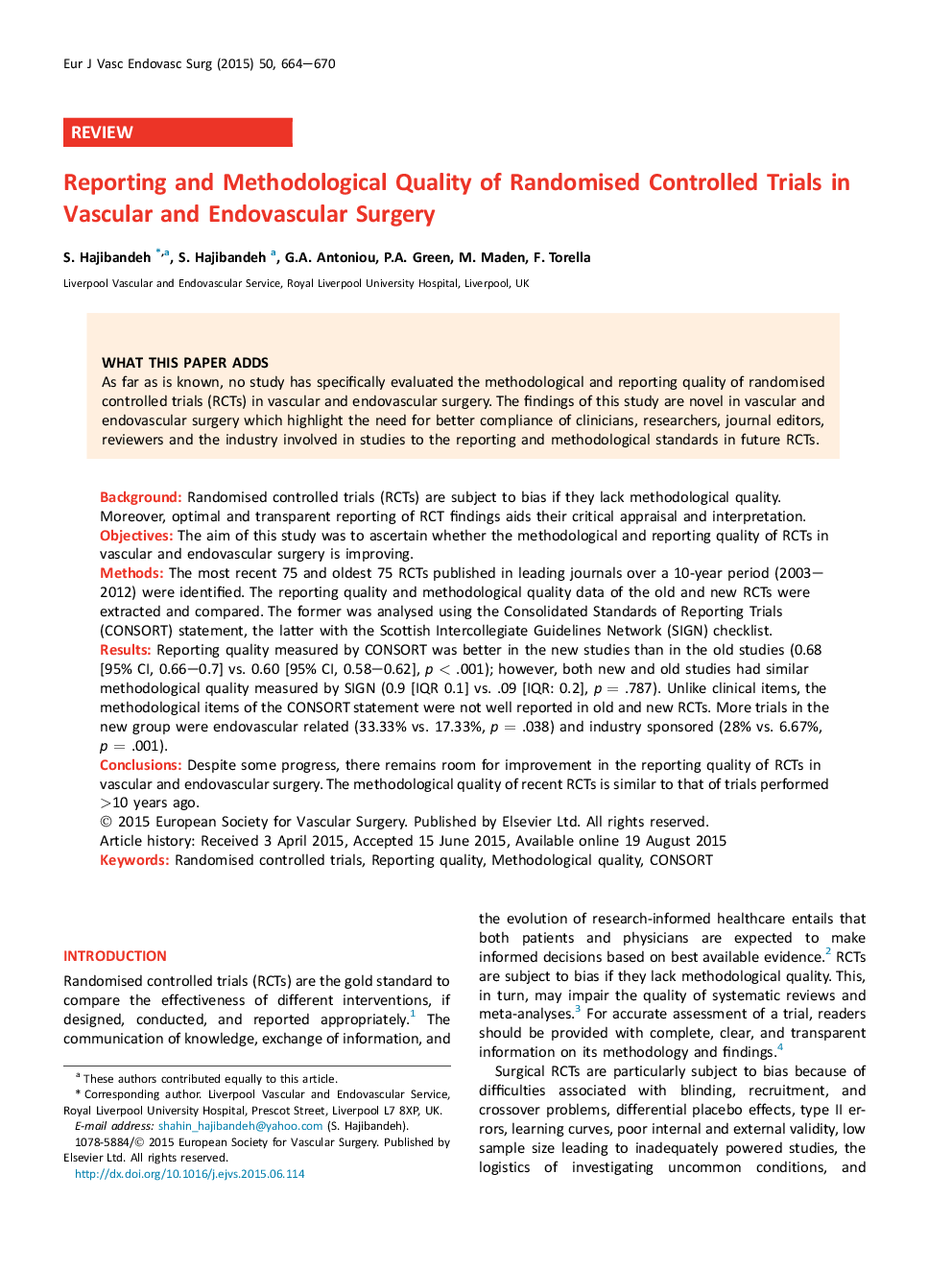| Article ID | Journal | Published Year | Pages | File Type |
|---|---|---|---|---|
| 2911803 | European Journal of Vascular and Endovascular Surgery | 2015 | 7 Pages |
BackgroundRandomised controlled trials (RCTs) are subject to bias if they lack methodological quality. Moreover, optimal and transparent reporting of RCT findings aids their critical appraisal and interpretation.ObjectivesThe aim of this study was to ascertain whether the methodological and reporting quality of RCTs in vascular and endovascular surgery is improving.MethodsThe most recent 75 and oldest 75 RCTs published in leading journals over a 10-year period (2003–2012) were identified. The reporting quality and methodological quality data of the old and new RCTs were extracted and compared. The former was analysed using the Consolidated Standards of Reporting Trials (CONSORT) statement, the latter with the Scottish Intercollegiate Guidelines Network (SIGN) checklist.ResultsReporting quality measured by CONSORT was better in the new studies than in the old studies (0.68 [95% CI, 0.66–0.7] vs. 0.60 [95% CI, 0.58–0.62], p < .001); however, both new and old studies had similar methodological quality measured by SIGN (0.9 [IQR 0.1] vs. .09 [IQR: 0.2], p = .787). Unlike clinical items, the methodological items of the CONSORT statement were not well reported in old and new RCTs. More trials in the new group were endovascular related (33.33% vs. 17.33%, p = .038) and industry sponsored (28% vs. 6.67%, p = .001).ConclusionsDespite some progress, there remains room for improvement in the reporting quality of RCTs in vascular and endovascular surgery. The methodological quality of recent RCTs is similar to that of trials performed >10 years ago.
